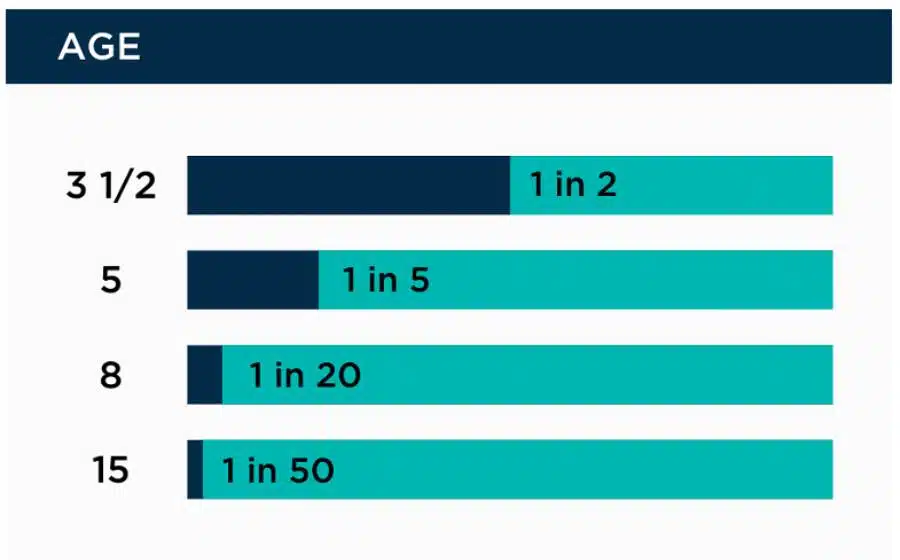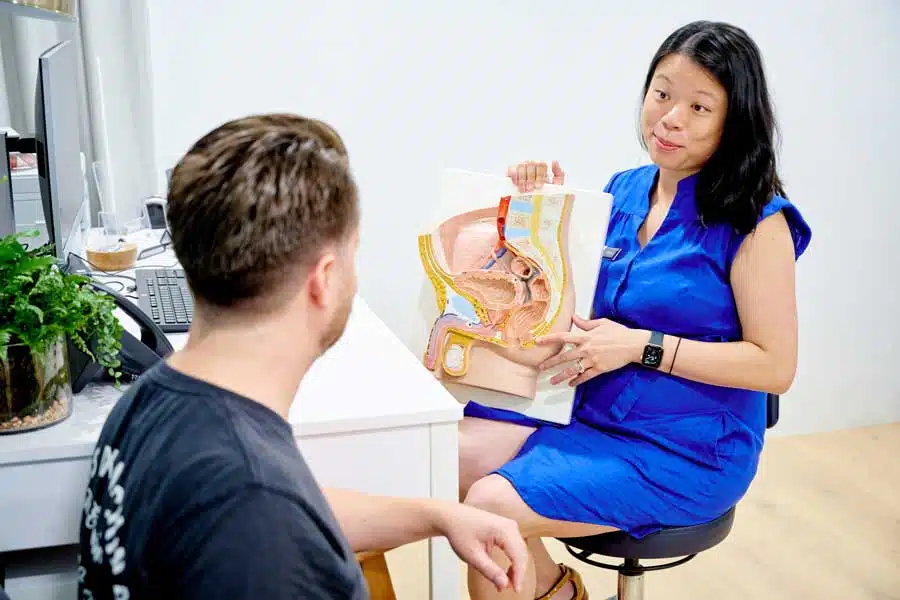Does your child struggle with bladder control at night? Nighttime wetting can be a difficult problem for children and parents to deal with. It can be frustrating to help a young child learn how to control an overactive bladder while they sleep, without making it feel like it’s the child’s fault. Luckily, though, with patience and time, children can work to move past bedwetting and have a dry night. There are many different things that can cause kids to struggle with nighttime bladder control. Read on to learn more about bed wetting, what causes it, and when you should seek help to deal with frequent nighttime accidents.
What is Bed Wetting?
Bed wetting, also known as nocturnal enuresis, is a medical problem where someone’s bladder empties itself involuntarily during sleep. This can be a common issue for young kids, especially during their toilet training years when they are beginning to learn to control their bladder. The most common age range for this condition is children between the ages of 3-5. This condition can impact older children as well, though, as seen in our chart below.

Involuntary urination can be a distressing and complex condition, brought on by a variety of factors. The important thing to keep in mind, though, is that sleep enuresis is an involuntary medical condition that can be helped with treatment.
Why Do Children Wet the Bed?
There are a few reasons why a child might struggle with bed wetting. Common causes for nighttime enuresis include:
⦁ Bladder instability/overactivity in the bladder
⦁ Difficulty waking up to bladder signals
⦁ Increased nighttime urine production in the kidneys
⦁ Struggles with constipation
Your child may also have a secondary medical condition that can lead to increased bedwetting. These can include:
⦁ A urinary tract infection
⦁ Sleep apnea
⦁ Diabetes or pre-diabetes
How to Prevent Bed Wetting
There are some myths out there around bedwetting aimed to make it look like bed wetting is the child’s fault, but these simply are not true. A child does not wet the bed due to laziness or attention-seeking. Bedwetting is also not an issue that can be cured by controlling fluid intake. Instead, it needs to be approached with compassion, as you look for a treatment solution.
There are a few treatment solutions out there that can help to address nocturnal enuresis, including:
Bedwetting Alarms
This is a super common treatment solution for bed wetting. With a bed wetting alarm, you will place a sensor on your child that will alert them during the night if they begin to urinate. The alarm will go off, waking up your child or yourself, alerting the user to finish urinating in the washroom. With time and the use of this alarm, your child will begin to naturally wake up around the time the alarm goes off, so they can wake up in the middle of the night themselves and go without wetting the bed first. With time, this can help them learn to avoid bed wetting!
Most of these alarms urge users to use this alarm for at least 12 weeks to learn to fully control the bladder at night. It’s a time commitment, but it has proven itself useful, giving kids confidence and control over their nighttime bladder.
Bedwetting Medication
This solution involves a child taking medication that reduces the amount or urine the kidneys make at night, thus reducing nighttime accidents. These medications are usually a last resort, and should only be prescribed to an older child, over the age of 5. While they are not recommended for long term use, they are amazing in a pinch. For example, if your child wants to participate in a sleepover with friends, it can give them some more control and security for nighttime.
Bedwetting Products
While these products won’t do much to cure bedwetting, there are a lot of products out there that parents can use to make children more comfortable during the night. Many potty training parents are familiar with bedtime pant products like Good Nites. These absorbent underpants can make nighttime bedwetting less messy, reducing the need to constantly wash sheets and clothes.
Additionally, you can also invest in bed wetting mats and pads that go over or under bed sheets, protecting your mattress and sheets from urine. These products are absorbent and comfortable and can do wonders to reduce the amount of mess a parent has to clean during bladder training.
When Should I Seek Help for Bed Wetting?
If your child is beginning to feel angry and frustrated due to bed wetting, it’s a good idea to seek medical treatment to help your child’s bladder. This is especially true if you have an older child, past the age of 8, who is struggling with this condition. It’s also a good idea to seek treatment if a child who never struggled with bedwetting suddenly finds themselves going involuntarily during the night.
Dealing with a child’s bedwetting can be frustrating for parents and embarrassing for children. With a Pelvic Health Physiotherapy treatment plan your child’s Physiotherapist can assure your child there’s nothing to be ashamed of, and steps can be taken to improve bladder capacity. Putting in the work to achieve the success of a dry night will make it all worth it!
Let Us Help You!
If you want healthcare support for bed wetting, visit us at Sydney Pelvic Clinic. We have a dedicated team of Pelvic Health Physiotherapists who can treat a wide variety of conditions in children, including:
⦁ Bed Wetting
⦁ Daytime Wetting
⦁ Constipation
⦁ Pelvic Pain
⦁ Urination/Defecation Pain
⦁ General Paediatric Conditions
Our Kids’ Continence service is fully prepared to help you learn how to deal with night time bedwetting, giving your child more control so they can live a happy, healthy life. Click here to learn more and book your consultation today.

